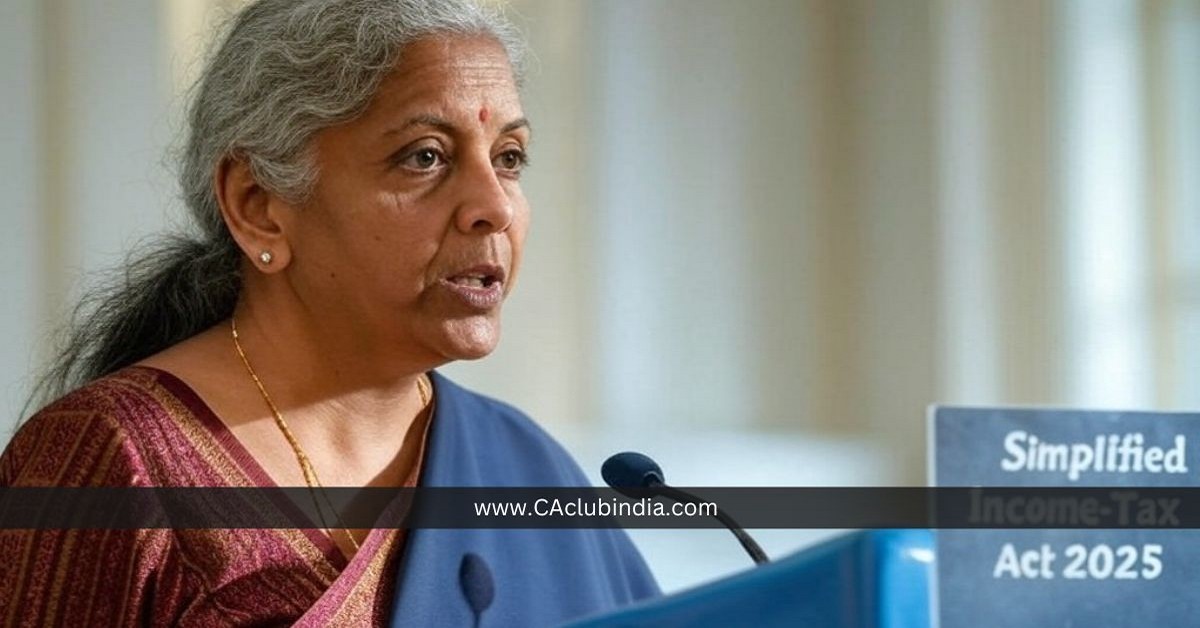The much-anticipated overhaul of the Income-Tax Act, 1961, is likely to be presented during the Budget session of Parliament on February 1, 2025. Finance Minister Nirmala Sitharaman is expected to pilot the simplified draft in her Budget speech. Sources indicate that the revamped law aims to reduce complexity, improve readability, and streamline compliance, without introducing significant policy changes or tax reforms.

Purpose of the Revamp
In the full Budget for FY25 presented last July, Sitharaman highlighted the need to rewrite the IT Act to:
- Simplify language and procedures.
- Reduce litigation and disputes.
- Provide tax certainty.
- Consolidate provisions and remove redundancies.
The existing Income-Tax Act has undergone nearly 3,000 amendments over the years, leading to a convoluted framework riddled with intricate sub-sections, cross-references, and provisos. The new draft promises to address these pain points while maintaining the existing tax regimes.
Draft Ready but Consultation Pending
According to government sources, the draft of the revamped law is complete and is being reviewed internally. However, concerns remain about the lack of time for stakeholder consultation before the Budget session. Tax experts suggest the draft should be shared for public feedback, similar to the process followed for the Data Privacy Bill.
"Businesses and taxpayers need sufficient time to review and provide suggestions for the rewritten law," noted a tax expert.
Simplification Over Policy Change
Officials emphasize that the revamp is focused solely on simplifying the law rather than altering tax rates or introducing new policies. The objective is to eliminate redundant provisions, simplify tax deduction at source (TDS) rates, and consolidate related clauses to make the law more accessible, particularly for individuals and small businesses.
Lessons from Past Attempts
This is not the first attempt to simplify direct tax laws. The most notable effort was the drafting of the Direct Taxes Code (DTC) in 2009 under the UPA government, which aimed for a significant overhaul of the tax framework. While the DTC itself was never legislated, many of its proposals, such as the General Anti-Avoidance Rules (GAAR) and reduced corporate tax rates, were implemented via amendments to the 1961 Act.
The latest effort draws from the recommendations of the DTC Task Force formed in 2017, which submitted its report in 2019.
Taxpayer Expectations
Tax experts and stakeholders are hopeful that the revamped law will address:
- Simplification of TDS rates.
- Removal of penalties for minor defaults.
- Improved clarity and fewer cross-references in the provisions.
However, experts caution that rewriting the Act alone will not resolve systemic challenges. "Drafting quality and complementary reforms are equally critical," a tax consultant observed.
A Step Toward Long-Term Reform
The revamped Income-Tax Act is expected to be a significant milestone in simplifying India’s direct tax system. While it may not bring major policy shifts, the effort to declutter the law and enhance its accessibility could lay the foundation for future reforms.
As India continues its march toward tax modernization, stakeholders eagerly await the unveiling of the simplified law in Budget 2025.




 CAclubindia
CAclubindia
